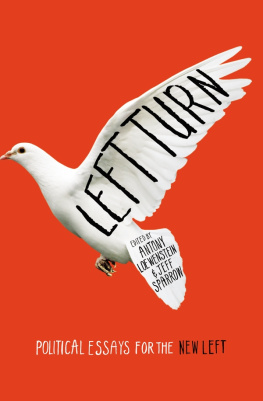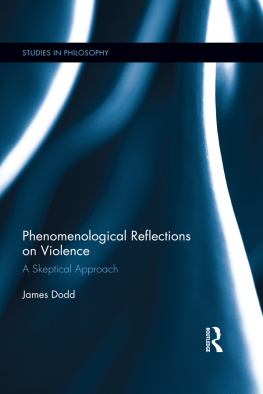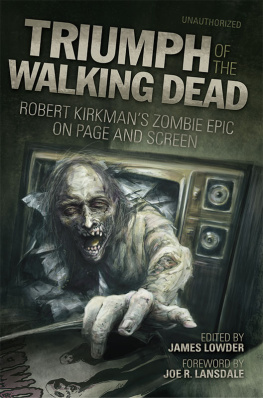
Were All Infected
Essays on AMCs The Walking Dead and the Fate of the Human
Edited by Dawn Keetley

McFarland & Company, Inc., Publishers
Jefferson, North Carolina
LIBRARY OF CONGRESS CATALOGUING DATA ARE AVAILABLE
BRITISH LIBRARY CATALOGUING DATA ARE AVAILABLE
e-ISBN: 978-1-4766-1452-6
2014 Dawn Keetley. All rights reserved
No part of this book may be reproduced or transmitted in any form or by any means, electronic or mechanical, including photocopying or recording, or by any information storage and retrieval system, without permission in writing from the publisher.
On the cover: A zombie from the first season of The Walking Dead television series, 2010 (AMC/Photofest)
McFarland & Company, Inc., Publishers
Box 611, Jefferson, North Carolina 28640
www.mcfarlandpub.com
To Nick,
who is starting to appreciate zombies,
and Helen,
who doesnt yet
Preface
This collection brings together an introduction and thirteen original scholarly essays on AMCs television series, The Walking Dead (with some discussion of Kirkmans comic series). Collectively, the essays argue for The Walking Dead as a ground-breaking zombie narrative, most importantly because it is the first such narrative in which the survivors are already infected. No zombie bite is needed to spread the contagion; it is immanent in human bodiesdeposited there by some event (or natural mutation) that has yet to be explained in either comic or TV series. If the early twenty-first century ushered in the viral zombie (notably in 28 Days Later [2002]), it has also, in The Walking Dead, introduced the viral human, biologically imbricated with the zombies that now, and into the future, form the conditions of its existence.
Since we are, in The Walking Dead, unambiguously also the zombie, the social and political allegories mapped out by the essays in the first section, Societys End, are all inevitably allegories in which human and zombie are not pitted against each other but symbiotically bound together. And human and zombie are bound together, above all, through their mutual violence. The characters of The Walking Dead are obsessed with guns, and their obsession metonymically represents what one essay calls the terror/security paradigmAmericans broader anxiety about constant threat and a corollary urgent security. This anxiety, above all others, shapes The Walking Dead, as it has shaped the post9/11 United States. The violence considered by the essays in the first section takes multiple forms: it is the violence of terrorism and natural catastrophe; it is self-justifying violence, violence perpetuated for self-defense and for survival; it is racist violenceimmediate and brutal, as well as long-term and exploitative; it is the violence of mass crime and lawlessness, as well as of law enforcement; and it is the violence of mourning. While The Walking Deads immense popularity is no doubt in part due to its routine representations of violence, the essays in this collection all argue that the series challenges the violence in which it also indulges.
If the immanent presence of the virus serves as the foundation of The Walking Deads stories of imbricated human and zombie violence, it also functions as the bedrock of the series contemplation of an equally important, more existential question: what does it mean to be human? The essays in the second section of this collection, Posthumanity, all suggest that The Walking Dead offers a thoroughly posthuman zombie narrative, and each essay fundamentally decenterscontesting, critiquing, or expandingreigning notions of the human. Several of the essays argue for the centrality in the series of the body, of its drives, instincts, neurons and muscles. We share a blind corporeality with the zombieand this fact dethrones a particular notion of the human as aligned with some intangible mind or soul and as more-or-less autonomous. Other essays address how the human is closely bound up with (indeed defined by) language and time, both of which, in our current moment, seem to be disappearing, as we suffer widespread illiteracy and a mass forgetting of the past; thus we seem, like the zombies themselves, to be slipping into a nonhuman aphasia and a monstrous timelessness. While the zombies of The Walking Dead, then, represent an exterior threat, to which the survivors respond with unremitting violence, they also represent an interior threat, some non-human yet finally entrenched part of ourselves.
This collection of essays is part of an emerging critical conversation about The Walking Dead, and our collective work is indebted to the two prior anthologiesTriumph of The Walking Dead, edited by James Lowder (Benbella Books, 2011) and The Walking Dead and Philosophy, edited by Wayne Yuen (Open Court, 2012). The essays in this collection were all written during the course of the third season of The Walking Dead, and I think I can speak for all the contributors when I say we all hope the conversation continues as the series continuesand that the series might indeed, as Robert Kirkman hopes, never end.
I would like to thank Laura Kremmel for her invaluable editorial work on this projectand for our conversations about The Walking Dead (and gothic/horror more generally). Rita Kurtz also added her incisive editorial assistance, and the book would definitely not be what it is if not for both of them. Lehigh University generously provided a research grant that helped me with editorial costs. Finally, Id like to thank Kurt who has, I suspect, for my benefit, pretended a greater interest in zombies than he really feels but who has nonetheless offered countless provocative comments about The Walking Dead that continue to inspire me. He has also read what Ive written and made my writing, as well as my thinking, much clearer than it would have been otherwise. I hope you keep watching, talking, and reading with me.
Introduction
Were All Infected
DAWN KEETLEY
The history of the zombies lurch onto the American screen is oft-rehearsed, so here I will just sketch the principal movements of the zombie narrative with the goal of marking the distinctiveness of The Walking Dead. After W. B. Seabrook penned his exotic account of Haitian voodoo in his 1929 The Magic Island, film-makers wasted no time bringing the zombie to mainstream audiencesmost notably in White Zombie (1932) and I Walked with a Zombie (1943). Both films exploited the idea of a body without a soul, subject to absolute control by another. Eliding the racialized imperial relationship between the U.S. and Haiti from 1915 to 1934 as well as the longer history of Afro-Caribbean slavery in which Haitian zombie rituals were rooted, the enslaved zombie in both films was a hyper-sexualized white woman, forced to do the bidding of white priests. Despite their curious erasure of racial slavery, these first white zombies nonetheless embodied anxieties about loss of autonomy and about one persons dominion over another.
By all accounts the most momentous event in the history of the cinematic zombie was George A. Romeros groundbreaking Night of the Living Dead (1968). Romeros revolutionary film abandoned the singular body bereft of soul typical of both Haitian ritual and early cinema and introduced, instead, a mass contagion of living death. Explained vaguely as the result of radiation from a Venus probe, the epidemic in
Next page
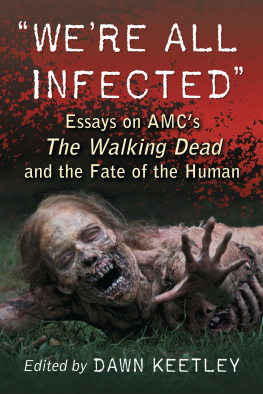

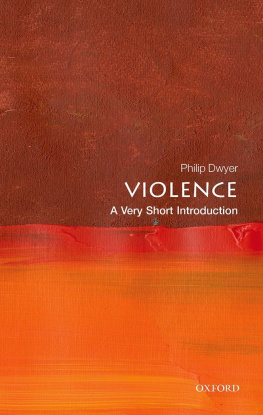
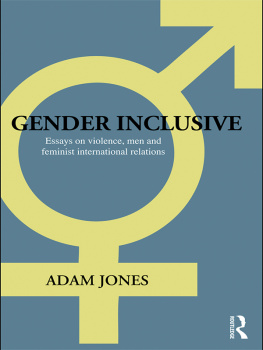
![David Schmid (editor) - Violence in American Popular Culture [2 volumes]](/uploads/posts/book/262757/thumbs/david-schmid-editor-violence-in-american.jpg)
